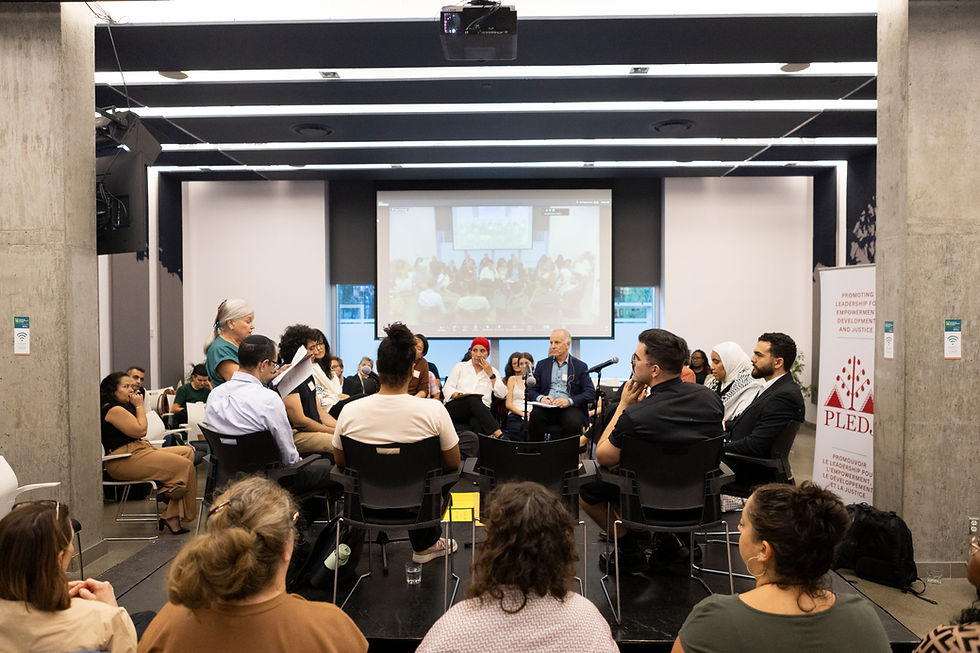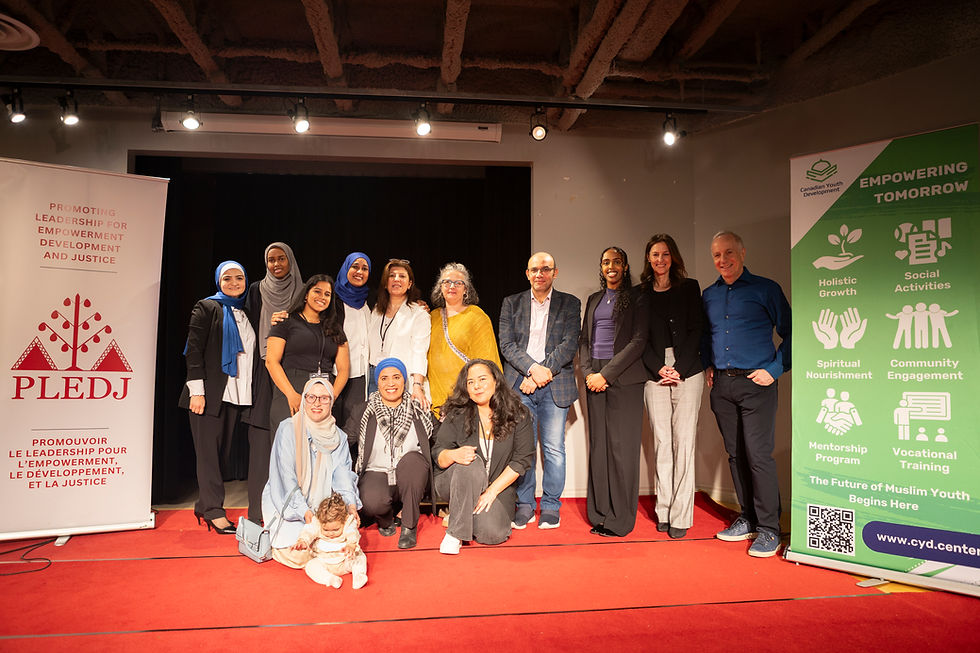Charting New Paths to the Solidarity Dialogues Program: McGill Faculty of Law Students
- PLEDJ
- Oct 30, 2025
- 3 min read
Building on the successful implementation of the Solidarity Dialogues Program with McGill's School of Social Work, we are thrilled to share that the initiative has now branched out to the McGill Faculty of Law.

Last week marked an inspiring expansion in our Solidarity Dialogues Program, with a new partnership with McGill’s Faculty of Law. Over the course of 12 hours spread across four days, 10 participants engaged in a transformative workshop series designed to learn how to communicate across differences, practice empathy, and build solidarity rooted in justice. The sessions explored the concept of dialogue versus debate and relational approaches to justice. It was powerful to see how the students were able to reflect on the importance of identity, emotion and experience in shaping one's reaction to conflict.
Using PLEDJ’s Nested Dialogue Model and experiential learning approaches, students explored the foundations of engaging in meaningful dialogue, ethical reflection and active listening in professional and community contexts. The sessions were co-facilitated by Prof. Amal Elsana Alh’jooj, Brian Bronfman, and Prof. Patrice Brodeur, whose expertise guided participants through deep and thought-provoking discussions.
After the 3 days of preparation and understanding the core principles of Solidarity Dialogues, the final session featured a dialogue around a particularly challenging and relevant theme selected by the participants: “The ethics of working for unethical clients or firms.” The dialogue was filled with honesty, curiosity, and courage. Using the skills that were developed and strengthened the previous days, students reflected on the importance of dialogue as a tool to bridge divides and promote solidarity, both within the legal profession and beyond.
The dialogue surfaced several powerful themes that highlight the complexity of human experience and ethical responsibility. Participants explored the realities faced by victims of systemic oppression and the moral challenges that arise when navigating the line between personal values and professional ethics. The discussion also examined how logical fallacies can distort understanding, emphasizing the importance of self-awareness in communication. Underpinning all these themes was a shared commitment to preserving dignity and ensuring no additional harm is done, while recognizing the profound responsibility involved in authentically representing the individual.
“We are social beings and weakness of the will, we are subject to society” - student participant
Addressing the Need for Dialogue in Academic Settings
Many participants shared that the experience helped them strengthen their ability to listen compassionately, engage without judgment, and approach difficult conversations with empathy and integrity.
As one student reflected,“Can I make myself vulnerable, am I making a space for other people to be vulnerable?”.
One of the main outcomes of this workshop series was learning how to apply dialogue-based approaches to mediation, community lawyering, and rights-based practice. Learning how to practice dialogue as a relational and transformative approach to justice was something the students found valuable not just in their professional lives.
Looking Ahead
We are deeply grateful to everyone who showed up, participated, and contributed to this new chapter of the Solidarity Dialogues journey. We are excited to see how these conversations continue to grow, inspire action, and strengthen our collective commitment to understanding and collaboration. Together, we are building not just dialogue, but a lasting community of solidarity and hope.
This initiative with the McGill Faculty of Law was a reminder of the importance of the transformative power of Dialogue in academic settings. Dialogue is how we learn to understand one another, how empathy takes root, and how communities honor every voice. Amid the divides we face in academia and beyond, let us remember: dialogue is more than an act, it is a bridge leading us toward healing and collective liberation.
If you are interested in participating in a Solidarity Dialogue Initiative or being part of the Second Cohort of the Solidarity Dialogues training, please fill this form.
This workshop series was in partnership with the McGill Faculty of Law. The Solidarity Dialogues Program was made possible from the partnership with the Peace Network for Social Harmony. PLEDJ also expresses our appreciation for Canadian Heritage, the Canadian Race Relations Foundation, Power Corporation of Canada, Donner Foundation and Trottier Family Foundation for their support.







Comments